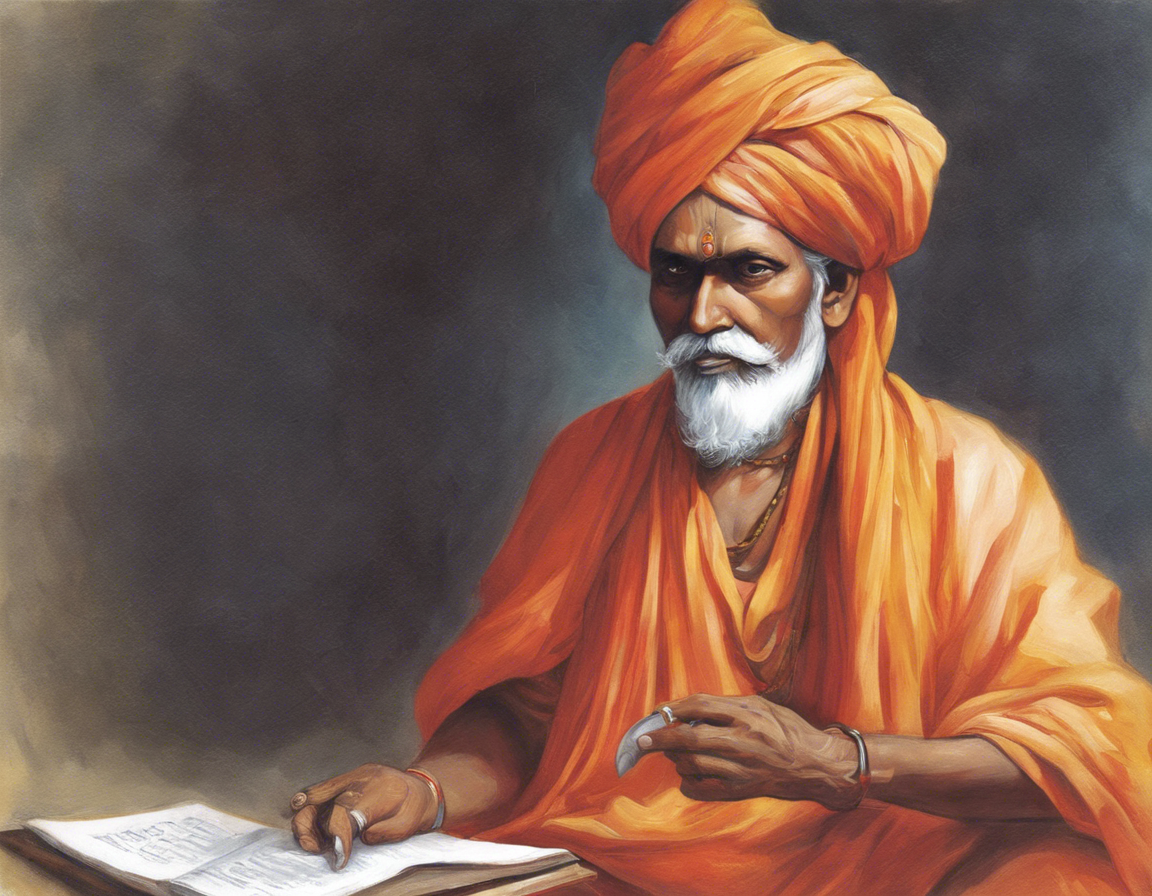
Introduction
Jyotirao Phule, also known as Jyotiba Phule, was a prominent social reformer, thinker, and activist in 19th-century India. He was a pioneer in advocating for education, women’s rights, and social equality. Phule belonged to the Mahar caste, considered one of the lowest in the social hierarchy in the Indian caste system. Despite facing discrimination and oppression, Phule dedicated his life to challenging the prevailing social norms and fighting for the rights of the marginalized communities. His contributions to Indian society are profound, and his ideas continue to inspire generations of social reformers.
Early Life and Influences
Jyotirao Phule was born in 1827 in present-day Maharashtra, India. Coming from a lower caste background, he faced discrimination and oppression from an early age. However, Phule was fortunate to receive some basic education from a local missionary school, which played a significant role in shaping his views on education and social reform.
One of the key influences on Phule’s thinking was the Brahmo Samaj, a reformist movement in Indian society that advocated for social equality, education for all, and the dismantling of social hierarchies. Inspired by the ideas of the Brahmo Samaj and other reformist movements, Phule began to question the prevailing social norms and traditions that perpetuated inequality and injustice.
Educational Initiatives
Phule was a strong advocate for universal education and believed that education was the key to empowering the marginalized communities. In 1848, he established the first school for girls in India, breaking traditional norms that denied education to women. The school was open to children from all castes and communities, emphasizing the importance of inclusive education.
Phule also founded the Satyashodhak Samaj, an organization that worked towards social reform and equality. Through his writings and speeches, Phule highlighted the need for social justice and empowerment through education. He believed that knowledge was the most potent tool for challenging the oppressive structures of society.
Women’s Rights Advocate
One of Phule’s most significant contributions was his advocacy for women’s rights. He recognized that women in Indian society faced multiple forms of discrimination and oppression and worked towards their empowerment. Phule believed that educating women was crucial for social progress and equality.
Phule’s wife, Savitribai Phule, was a pioneering figure in her own right. She was India’s first female teacher and played a crucial role in establishing schools for girls. Together, Jyotirao and Savitribai Phule challenged societal norms and paved the way for women’s education and empowerment in India.
Critique of the Caste System
Phule was a staunch critic of the Indian caste system, which he saw as a system of social hierarchy and oppression. He argued that the caste system perpetuated inequality and discrimination and called for its abolition. Phule believed in the equality of all human beings and rejected the notion of superiority based on birth.
Through his writings, such as the book “Gulamgiri” (Slavery), Phule exposed the injustices of the caste system and advocated for a society based on egalitarian principles. He focused on social inclusion and solidarity among all members of society, irrespective of their caste or social status.
Legacy and Influence
Jyotirao Phule’s legacy continues to inspire social reformers and activists in India and beyond. His emphasis on education, women’s rights, and social equality remains relevant in contemporary discussions on social justice and empowerment. Phule’s work laid the foundation for progressive movements that seek to challenge and transform oppressive structures in society.
Phule’s ideas have also influenced political movements in India, particularly the Dalit movement, which seeks to empower and advocate for the rights of the Dalit community and other marginalized groups. His emphasis on empowerment and solidarity continues to resonate with those fighting against injustice and inequality.
Conclusion
Jyotirao Phule was a trailblazer in the field of social reform and empowerment in India. His relentless efforts to challenge oppressive structures and advocate for education, women’s rights, and social equality have left an indelible mark on Indian society. Phule’s vision of a just and inclusive society continues to inspire generations of social activists and change-makers striving for a better world.
Frequently Asked Questions (FAQs)
- Who was Jyotirao Phule?
-
Jyotirao Phule was a prominent social reformer, thinker, and activist in 19th-century India. He was a pioneer in advocating for education, women’s rights, and social equality.
-
What were Phule’s contributions to Indian society?
-
Phule established the first school for girls in India, advocated for women’s rights, and critiqued the caste system. He founded the Satyashodhak Samaj and emphasized the importance of universal education.
-
Why is Jyotirao Phule important in Indian history?
-
Phule challenged social norms and oppressive structures in Indian society, paving the way for social reform and empowerment. His ideas on social justice and equality continue to be relevant today.
-
How did Phule advocate for women’s rights?
-
Phule believed in educating women as a means of empowerment and social progress. His wife, Savitribai Phule, was India’s first female teacher and played a crucial role in establishing schools for girls.
-
What was Phule’s stance on the caste system?
- Phule was a critic of the caste system, which he saw as a system of oppression and discrimination. He called for the abolition of the caste system and advocated for a society based on egalitarian principles.
References:
- Omvedt, G. (2008). Jyotiba Phule: An emancipator of women. Economic and Political Weekly, 43(15), 17-19.
- Thorat, S. (2011). Riddles of Indian education system: Jotirao Phule’s perceptions. Economic and Political Weekly, 46(39), 58-63.
- Moon, V. G. (2002). Jyotiba Phule: Crusader for social equality. Pragati’s Economic Reforms Journal, 4(2), 94-106.
